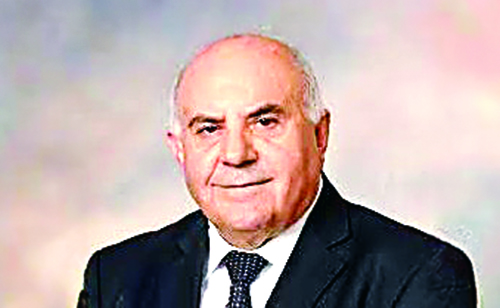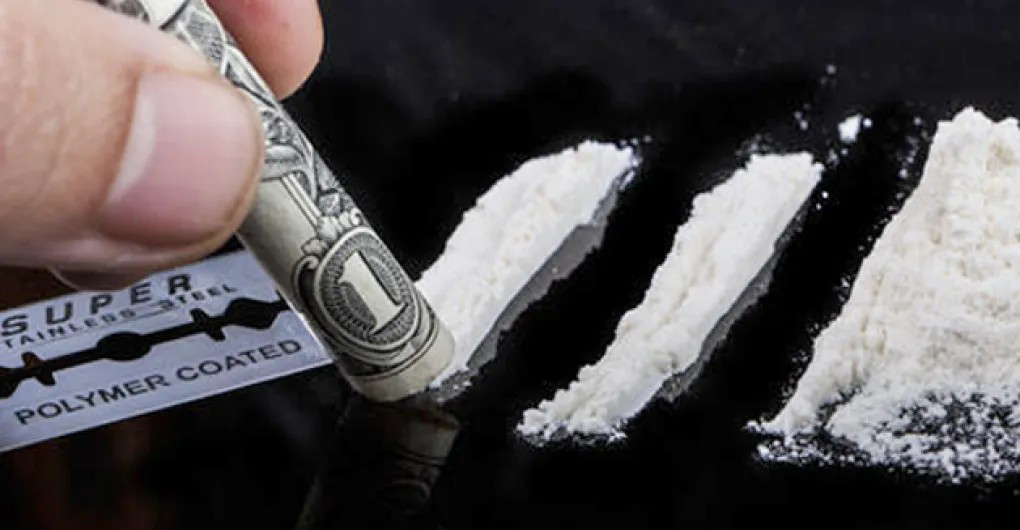Filenews 27 April 2025 - by Marios Demetriou
With 100,000 Cypriots, aged 12 and over, currently meeting the clinical criteria for addiction to nicotine, alcohol or other substances, it is time to focus the efforts of the state and all those responsible for the prevention of the disease of addiction, instead of just combating substance use, as is happening now, according to a very important study by KENTHEA (Centre for Information and Treatment of Addicted Persons), for a decisive solution to the problem of substance and behaviour addictions in Cyprus.
The scientific director of the Center, neurologist psychiatrist Dr. Kyriakos Veresies (M.D.Ph.D), professor at Philips University, spoke about this study in an interview with the signatory for "F", in view of the 26th conference of KENTHEA, which will take place the following Saturday, May 10, 2025. KENTHEA completed 30 years of life and activity last September. Dr. Veresies stressed that "primary prevention programs should be seen as an investment in the future of society, because they can prevent the emergence of problems that would require much greater costs later on – such as the construction of a safe road network, it is rightly considered an investment to save lives in the future, without prioritizing only cost and direct benefit. In particular, the failure to invest in primary prevention of drug use – he added – leads to an increase in addictions, health problems and crime, which significantly burden society.
He pointed out that the number of 100,000 addicts in Cyprus "is greater than the number of people with heart disease, diabetes or cancer. In addition, he added, 150,000 people are classified as dangerous drug users." An equally worrying finding that the KENTHEA study reveals is that "only about 1 in 10 people with addiction to alcohol or illicit substances (other than nicotine) receive any form of treatment – and of those, few receive science-based care." He added that "most health professionals who should be doing addiction prevention and treatment are not adequately trained to diagnose or treat the disease, and many of those who provide care lack the necessary knowledge, skills or certifications."
Addictions outside the GHS, treatment only 1 in 10
Responding to our question, what is the percentage of people who need treatment for addiction and end up receiving it, Dr. Veresiez observed that "most people who need treatment for addiction don't get it! While for other chronic conditions, such as hypertension, depression and diabetes, about 7 out of 10 people receive treatment, only 1 in 10 people with alcohol or other drug addiction (other than nicotine) receive treatment. There is a huge treatment gap, which in our case concerns about 100 thousand people. There is not even data on the treatment gap in nicotine addiction. The percentage of people receiving treatment for alcohol and drug addiction has changed little since 2000, remaining around 2 percent." In relation to the main sources of referrals for treatment in Cyprus, the scientific director of KENTHEA, stressed that "it is worrying that the percentage of referrals from the GHS to treatment centers is zero. On the contrary, a significant percentage of referrals (21.7% according to data from the Anti-Narcotics Agency (YKAN) for 2018), come from the criminal justice system, which underlines that addiction is often treated only when it has serious social consequences. Referrals from the Welfare Office do not exceed 5%, and from schools it is only 1.4%. The largest percentage of referrals (over 50%) come from the users themselves, their families and friends." According to KENTHEA, "there are many obstacles to patients' access and the completion of their rehabilitation treatment, since in addition to the lack of referrals from the health system, other obstacles intervene, such as the non-inclusion of addictions in the GHS, the misunderstanding of the disease, the negative attitudes of the public, privacy concerns, inadequate insurance coverage, the lack of information on how to get help, the limited availability of services and specialist doctors, as well as specialized and certified personnel, inadequate social support, conflicting time commitments, negative perceptions of treatment and legal obstacles."
Substance use and addictive behaviours
"Addiction is a complex brain disease characterized by significant changes in behaviour," Dr. Veresiez told "F" when we asked him to give us a brief definition of addiction. Asked what substances are commonly associated with addiction and how they affect the brain, he said that "nicotine, alcohol, illicit drugs and some prescription drugs affect the brain's pleasure and reward circuitry in similar ways. In addition, recent research shows that behaviours such as obesity, gambling, sexual addiction, video games and excessive use of the internet may share common neuropsychological and genetic pathways with substance addiction. And it's important to treat these behavioural manifestations, because they can be an indication of an underlying addiction disease, or lead to addiction substitution, where one person substitutes one addictive behaviour for another. Over time, the continued use of addictive substances in the brain can physically alter the structure and function of the brain, negatively affecting reasoning, judgment, and behaviour, leading to a compulsion to acquire and use them, despite the negative consequences." Responding to a question about whether some people are more vulnerable to addiction, he told us that "more and more evidence points to structural and functional differences in the brain and genetic factors that may predispose some individuals to addiction. Risk factors include genetic predisposition, structural and functional brain vulnerabilities, individual psychological factors, and environmental psychosocial influences.
Damage to the brain's reward circuitry, easy access, substance use in the family, or influences from the media and peers, play an important role in whether a person will start smoking, drinking, or using other substances. In 90% of cases, addiction that begins before the age of 21-30, when the brain is still developing and is more vulnerable to the effects of addictive substances, can contribute to or cause a wide range of medical problems. Addiction can become a chronic disease and there is great variation in the severity and course of the disease and its symptoms. Some individuals may experience a single episode, while in other cases, addiction manifests itself as a chronic, persistent illness that requires ongoing professional treatment and management. When it results from use and abuse, it turns into a disease and, like other diseases, can and therefore must be diagnosed and treated within the public health system, using practices based on scientific evidence."
The most neglected disease
"Unfortunately, addiction and dangerous substance use are among the biggest health problems in Cyprus today," Dr. Veresies told us. "These problems cause or contribute to more than 70 other conditions that require medical care, such as cancer, respiratory and cardiovascular disease, HIV/AIDS, pregnancy complications, cirrhosis, ulcers and trauma, as well as mental health and behavioural disorders such as depression, anxiety, post-traumatic stress, bipolar disorder and schizophrenia. In addition, they lead to and contribute to a wide range of costly social consequences, such as crime, accidents, suicide, domestic violence, child neglect and abuse, family dysfunction, unplanned pregnancies, and loss of productivity." Worrying data on the onset of substance use at a young age in Cyprus is recorded by the KENTHEA study, as reported to us by its scientific director, since, "15% of children try their first cigarette before the age of 15, 8% try cannabis and 4.5% have been drunk from alcohol abuse before the age of 15. In addition, a significant percentage, 31.1%, gets drunk for the first time between the ages of 15 and 17. The economic cost of addiction and dangerous substance use for the government in Cyprus amounts to at least €60 million each year, according to data from the Cyprus Addiction Treatment Authority (AAEK) for 2016 and this amount does not include an additional €20 million spent annually on about 100 people entering central prisons (with a total of about 800 years of imprisonment). as well as the maintenance costs of their families and the multiple social and anti-social effects resulting from the actions of these individuals. There is no other disease that affects so many people, has such far-reaching consequences, and for which there is such a wide range of effective interventions and treatments, that it is so neglected as the disease of addiction."

KENTHEA's proposals – emphasis on demand reduction
Developing the main proposals of KENTHEA, for addressing the problem of addictions in Cyprus, based on the conclusions of the study, Dr. Veresies stressed that "a decisive shift must be made, from strengthening the reduction of supply, to strengthening the reduction of demand. Now the correlation is 1 euro in prevention and 57 euros in repression". He continued: "Our proposals include the comprehensive implementation of primary and secondary prevention programs, at all levels, the integration of control and intervention for dangerous substance use into daily medical practice, the integration of the diagnosis and treatment of addiction into standard medical practice, the adaptation of compulsory treatment programs for psychotic conditions caused by substances, incorporating addiction treatment in the same space". KENTHEA's proposals also include the creation of training programs for all health workers, regarding the treatment of dangerous substance use and addiction, the creation of a protocol of standards for the accreditation, recognition and certification of addiction counsellors for health professionals, the collective intervention in the GHS and insurance companies to provide coverage for comprehensive care for addiction and finally, the expansion of the protocol of the Public Prosecutor's Office/Public Prosecutor's Office, which concerns the referral to treatment, instead of prosecution, for all substances and all ages – and not only for people up to 24 years of age".

Lectures to parents on the education of their children
A joint initiative of KENTHEA and the Cyprus Pedagogical Institute, approved by the Cyprus Addiction Treatment Authority (AAEK), under the auspices of the Minister of Education Athena Michaelidou, will be announced at the organization's upcoming conference on May 10. It concerns the implementation of the primary prevention program AKOMA (Student Family Academy), which was first operated by KENTHEA in 1998 and is addressed to the 87,000 parents of Cyprus. As Dr. Veresies told us, the program "enables parents to learn how to enhance the healthy psycho-emotional development of their children, depending on the age stage they are in. It includes 36 free lectures through TEAM, in 2025-2026, on children's education issues, for better communication in the family and for the acquisition of knowledge from parents for the prevention of addictions. The lectures will be held every Monday online, from 19.00-20.30 by psychiatrists, psychologists, social workers, sociologists and teachers. The campaign is expected to start in September 2025. Depending on the needs, and after an assessment of the parents' willingness to participate, a training program such as parent schools and experiential workshops can follow. This program, before being implemented, will be submitted to AAEK for approval.
